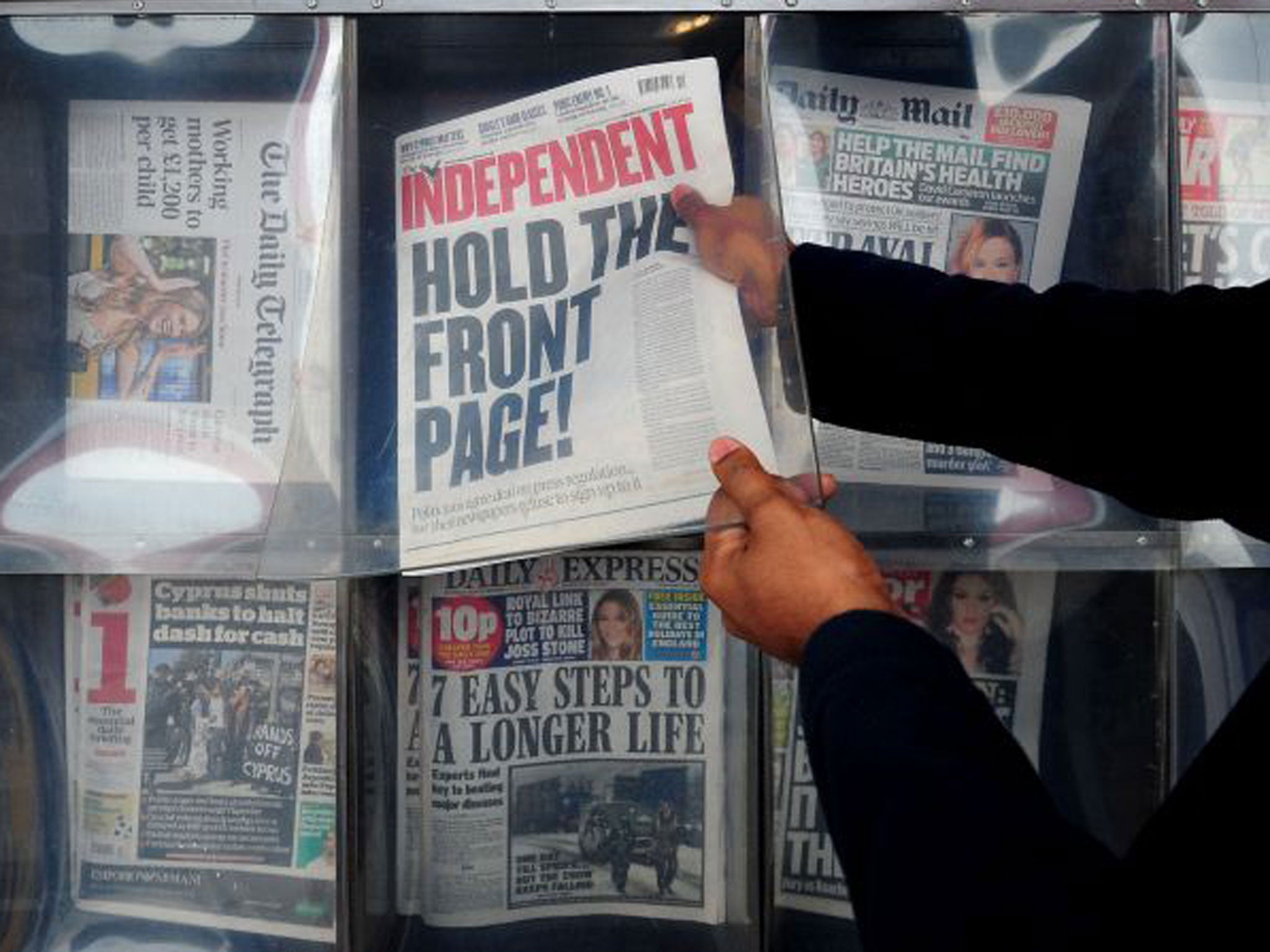New York Times says Royal Charter harms free speech
Small publishers and websites under threat, says paper that helped expose hacking scandal

Your support helps us to tell the story
From reproductive rights to climate change to Big Tech, The Independent is on the ground when the story is developing. Whether it's investigating the financials of Elon Musk's pro-Trump PAC or producing our latest documentary, 'The A Word', which shines a light on the American women fighting for reproductive rights, we know how important it is to parse out the facts from the messaging.
At such a critical moment in US history, we need reporters on the ground. Your donation allows us to keep sending journalists to speak to both sides of the story.
The Independent is trusted by Americans across the entire political spectrum. And unlike many other quality news outlets, we choose not to lock Americans out of our reporting and analysis with paywalls. We believe quality journalism should be available to everyone, paid for by those who can afford it.
Your support makes all the difference.The New York Times has warned that British proposals to regulate the press through a Royal Charter will “chill free speech and threaten the survival of small publishers and internet sites”.
The newspaper said the plans drawn up by the three main political parties to implement the recommendations of Lord Justice Leveson would do “more harm than good”. The criticisms carry particular weight because of the role of the New York Times in exposing the phone-hacking scandal, which led to the Leveson inquiry.
In an exposé published in 2010, the paper shone new light on the “endemic” use of phone hacking at the News of the World. In its leader column, it said that the role of the press in uncovering the criminal activities of other journalists needed to be kept in mind. “It would be perverse if regulations enacted in response to this scandal ended up stifling the kind of hard-hitting investigative journalism that brought it to light in the first place.”
The comments came as The Guardian published a piece by Simon Jenkins describing the charter as “blatantly one-side justice”. He said “it is hard to imagine a more ‘chilling’ deterrent to serious press investigation than this” and added that the press must face a difficult economic future “wearing a ball and chain”. Mr Jenkins, a former editor of The Times, is a member of group advising Lord Hunt, chairman of the Press Complaints Commission, on the setting up of the new press regulatory body.
The criticisms of the Royal Charter continue to create doubt over whether the system can operate with credibility. Britain’s biggest newspaper groups – including the publishers of the Daily Mail, the Daily Telegraph and The Sun – and the magazine sector have expressed concerns about “deeply contentious issues” in the charter. The president of the Newspaper Society, Adrian Jeakings, said the system would “open the floodgates to compensation claimants” and “place a crippling burden” on the regional press.
News organisations are understood to have taken high legal advice amid speculation of a widespread boycott. The Spectator and Private Eye magazines have both indicated that they will not be joining the new system, which is voluntary but leaves non-members at risk of exemplary damages imposed in the libel courts. In an editorial today, The Independent says that, “with reluctance”, it was accepting the Royal Charter. “It is not enough for newspapers simply to promise a cleaner future,” it said.
In an attempt to appease fears among bloggers and news websites that they would be restricted by the new regulator, members of the Open Rights Group, which campaigns to protect the rights of internet users, were called to a meeting at Hacked Off’s offices in London. In a piece on the Open Rights Group website, writer Simon Phipps said of the charter: “The big story here is not erosion of press freedom; it is rather the chilling of the voice of the citizen.”
Join our commenting forum
Join thought-provoking conversations, follow other Independent readers and see their replies
Comments